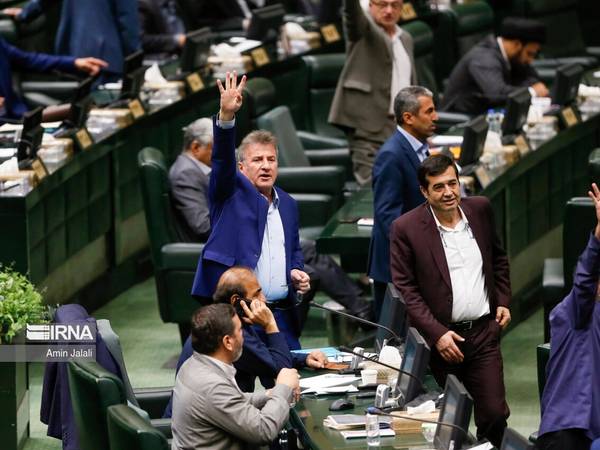The Iranian parliament greenlit a ‘controversial’ bill on Wednesday in favor of a two-day weekend, after drawing criticism and opposition from hardliners who associated it with the "Western lifestyle" and the Jewish Sabbath.
Yet to be approved by the Guardian Council – made up of Islamic clerics – it would usher in changes to the workweek. Fridays and Saturdays would become the official days of rest, and the work week would be reduced to 40 hours from the current 44.
Currently, Friday is the only official day of rest in Iran. However, many government offices and private companies also observe full or partial closures on Thursdays.
The bill cleared its first hurdle, despite facing opposition from hardliners and institutions closely aligned with Supreme Leader Ali Khamenei, who objected to designating Saturdays as the second official day off due to religious and ideological reasons.
Khorasan media outlet, close to the Islamic Revolutionary Guard Corps (IRGC), emphasized that "the issue is not just a day off; it is the issue of changing the social order.”
"Friday is a symbol of Islam as opposed to Saturday, which is the symbol of Judaism, and Sunday, which is the symbol of Christianity. We ignore the symbolic significance of days…In a society, identity determines your border with others, but neglecting it leads to cultural mixing, de-identification, and lack of individuality," the outlet said.
Both Iran’s parliament and government are dominated by ideological hardliners with anti-Jewish and anti-Israeli views. In the past four decades, the Islamic Republic's ruling regime has spent billions of dollars on anti-Israel groups and campaigns in the region and beyond.
President Ebrahim Raisi's parliamentary deputy Mohammad Hosseini said last week that the government supported Thursday's option instead of Saturday.
At a time when the Iranian regime is experiencing perhaps its lowest popularity since its establishment in 1979, it is grappling with criticism over an economy in decline and escalating inflation.
Since at least the 1990s, Iranian government officials and ruling clerics have been implicated in financial corruption and embezzlement of billions of dollars, intensifying public discontent.
According to official figures released by the interior ministry, around 60% of the 84 million Iranians live under the relative poverty line of whom between 20 to 30 million live in "absolute poverty".
Meanwhile, political supporters of Saturdays argued that cutting economic ties with the world for four consecutive days, potentially from Thursday to Sunday, would severely damage trade and production.
Lawmakers pointed out that other Islamic countries in the region, including Saudi Arabia, the United Arab Emirates, Pakistan, Turkey, and Iraq, also hold weekends on Fridays and Saturdays.
On Wednesday, Mohsen Pirhadi, a lawmaker representing Tehran, said, "Choosing Saturday would be the most economically beneficial and least costly option.”
To clarify that Thursday is not religiously significant or sacred like Friday, the private sector has lobbied top Shia clerics who can provide guidance, to confirm this.
In a letter on April 17, the Iran Chamber of Commerce chairman, Samad Hassanzadeh, appealed to the Supreme Leader, Ali Khamenei, to support the private sector's position.
Ayatollah Abdollah Javadi-Amoli, a "Marja" – a high-ranking religious authority in Shia Islam with many followers—announced on Wednesday that there is no religious barrier to declaring Saturdays a holiday: "The holiday on Saturday is to coordinate with the global economic market and transactions, and it is effective in solving some economic problems and curbing inflation."
Javadi-Amoli, who has been outspoken about the financial hardships many families face, warned in April that unresolved financial difficulties could lead to losing faith in a meeting with the CEO of Iran’s National Bank (Bank Melli Iran).
“Religion will be wrecked if the economy cannot satisfy [the needs of the] people…After religious matters, money and wealth are what matters the most in the country,” he stated.
Furthermore, several top clerics in Iran, typically supportive of the government, have recently expressed concern about high inflation, which surpasses 50%, fluctuating exchange rates, and the impact of sanctions on the economy, blaming the administration.
